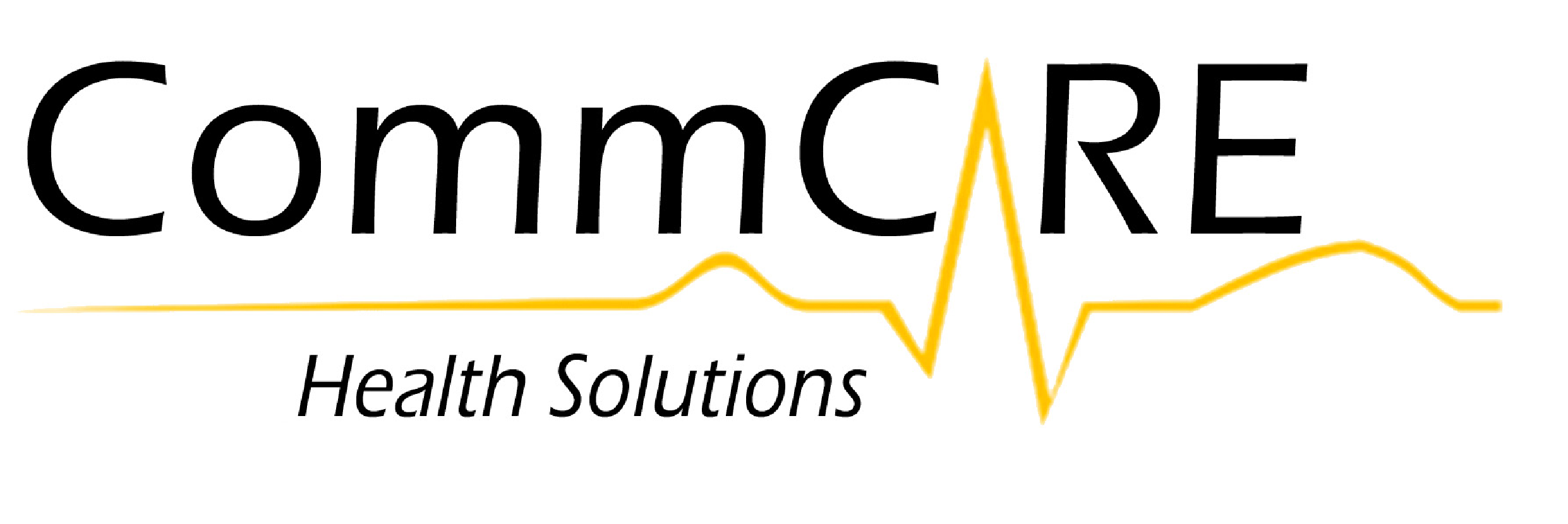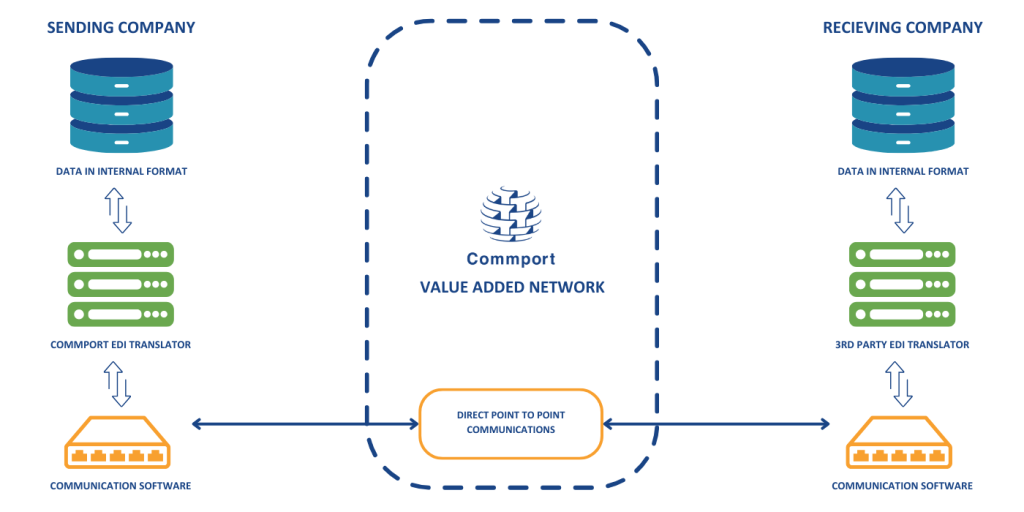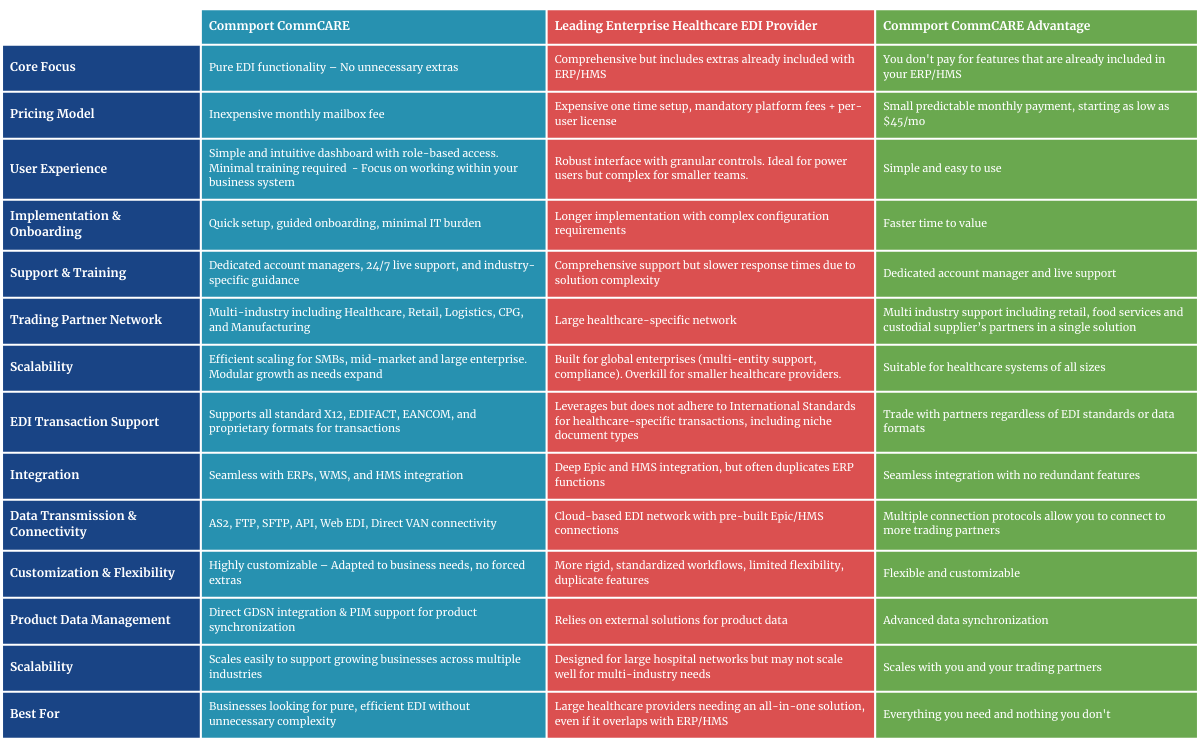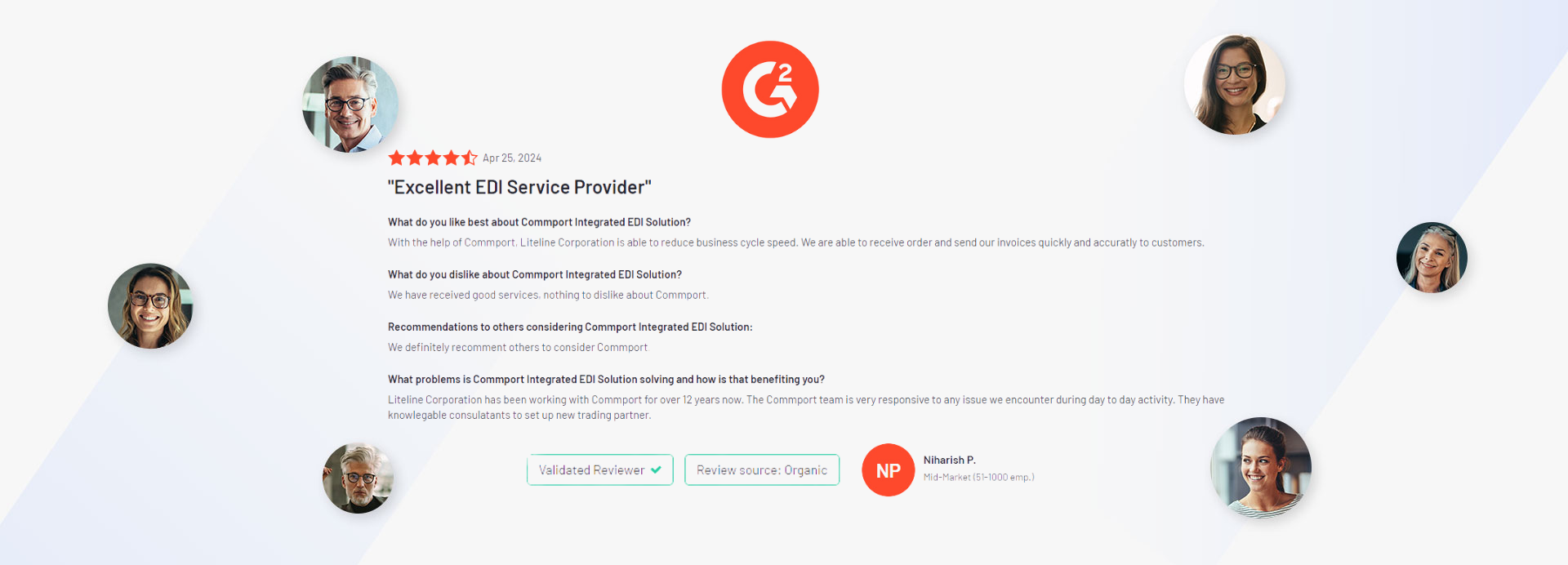EDI compliance in healthcare is an essential framework that ensures the secure, standardized, and efficient exchange of electronic data among healthcare stakeholders. It plays a critical role in safeguarding patient information, reducing costs, and enhancing the overall quality of care in the healthcare industry.

EDI compliance in healthcare is an essential framework that ensures the secure, standardized, and efficient exchange of electronic data among healthcare stakeholders. It plays a critical role in safeguarding patient information, reducing costs, and enhancing the overall quality of care in the healthcare industry.
A key driver of healthcare supply chain performance optimization is the ability to maintain and enforce the use of contract terms and prices negotiated by sourcing owners. Hospitals pay an estimated 3-10% premium on the price of every item they purchase that is not identified with a sourcing contract. The result is a nearly 40% loss of the projected savings that were identified when the contract was negotiated. Best-in-class organizations achieve up to 80% more savings than others through a clearly defined contract compliance process. Commport healthcare EDI solutions can easily help identify these gaps and help you prevent these losses


With CommCARE Compliance you have visibility into contract pricing at the point of the purchase decision, eliminating non-compliant purchase activity. In addition, by enforcing contract utilization you have assurance that each transaction is compliant with the terms and pricing of the contract; maximizing the savings that were negotiated. But CommCARE Compliance goes beyond that by providing detailed rebate tracking and reconciliations.
An integral part of the procurement process is that CommCARE Compliance maximizes savings by enforcing contract terms and pricing on each transaction. Ensuring that purchasers buy from preferred sources and meet vendor performance commitments, results in improved discounts and rebates. Too often the specific terms of the contract are disconnected from the procurement process where day-to-day purchasing decisions are made. CommCARE Compliance connects the relationship between the item, preferred vendor and contracted price, making it easy to realize cost savings during your everyday purchasing

CommCARE is the definitive choice for businesses prioritizing simplicity, speed, and cost control. Its right-sized approach ensures you invest in EDI capabilities that drive ROI—not niche features that drain resources.

Healthcare EDI compliance relies on standardized formats and codes, such as those defined by the Pan-Canadian Messaging Specification for Electronic Health Records (PCS-EHR) and the Canadian Clinical Drug Data Set (CDDDS), to ensure consistency and interoperability in data exchange.
Protecting patient data is paramount in any healthcare system. Compliance involves strict adherence to privacy laws like the Personal Information Protection and Electronic Documents Act (PIPEDA) and provincial healthcare privacy regulations to safeguard patient information from unauthorized access and breaches.
Compliance with healthcare regulations, including provincial health information protection laws and guidelines, is essential. These regulations complement federal laws like PIPEDA and set standards for data handling and privacy.
EDI compliance in healthcare streamlines administrative processes, reducing manual data entry and the potential for errors. This leads to increased efficiency and accuracy in tasks such as claims processing, billing, and patient record management.
By automating data exchange and reducing paperwork, EDI compliance helps healthcare organizations cut operational costs, improve resource allocation, and allocate more resources to patient care.
healthcare EDI compliance often requires the maintenance of detailed audit trails, documenting all electronic transactions. These audit trails are essential for tracking the history of data exchanges and ensuring accountability, aligning with privacy requirements.
A small sample of our many partners






Discover the transformative impact of our EDI, CPS, and VAN solutions through the powerful testimonials of satisfied clients who have experienced remarkable results with Commport products and services.







